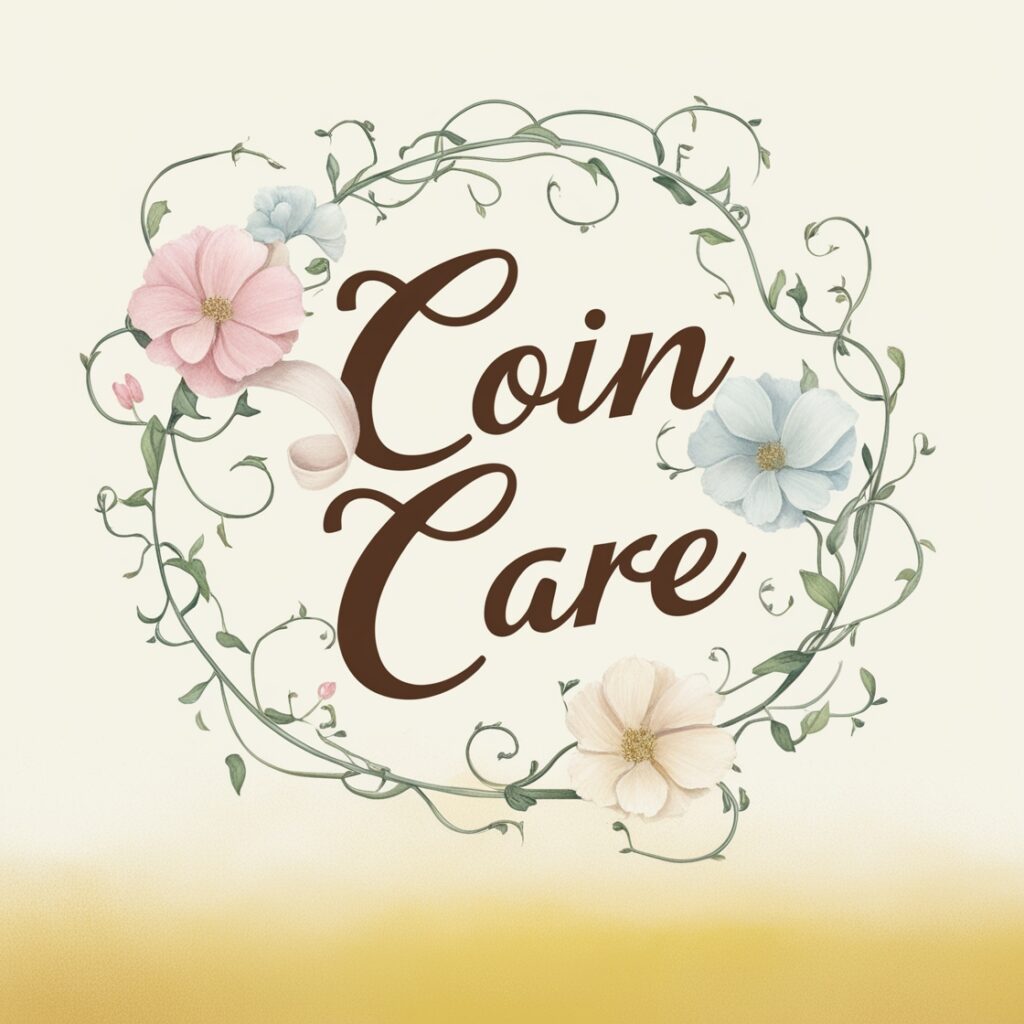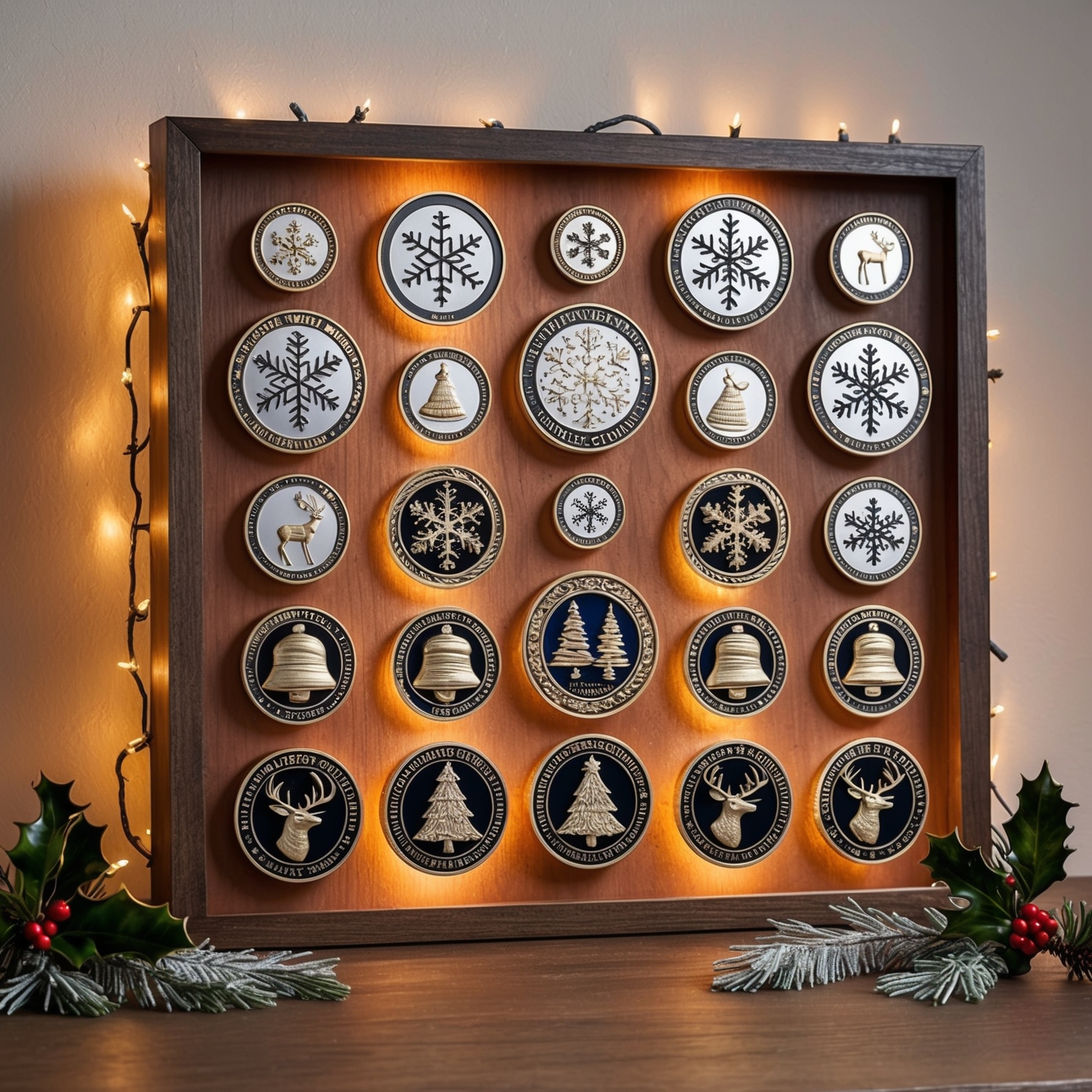The Importance of Proper Coin Care
Collecting coins is a fascinating hobby that offers a glimpse into history, culture, and art. Whether you’re a seasoned numismatist or a novice collector, preserving the condition of your coins is paramount to maintaining their value and beauty. Proper coin cleaning and storage are essential to safeguard your collection from damage and degradation. This article provides expert advice on the best practices for coin cleaning and storage, ensuring that your collection remains in pristine condition for generations to come.
1. Understanding the Basics of Coin Cleaning
Why Cleaning Coins is Controversial
Coin cleaning is a contentious topic among collectors and experts. Improper cleaning can significantly reduce a coin’s value, as it may remove the natural patina and cause scratches or other damage. It’s crucial to understand when and how to clean coins to avoid diminishing their worth.
Example: A collector who mistakenly uses abrasive materials to clean a rare coin may inadvertently strip away its historical value and surface details, leading to a decrease in its market value.
When to Clean Your Coins
In most cases, it’s advisable to avoid coin cleaning, especially if they are rare or valuable. However, there are situations where cleaning may be necessary, such as when coins are heavily soiled, corroded, or have contaminants that could cause further damage.
Example: A coin found in a metal detector hunt might be covered in dirt and corrosion, requiring careful cleaning to reveal its details and prevent further deterioration.
2. Safe Coin Cleaning Techniques
Gentle Cleaning with Distilled Water
Distilled water is a safe and effective coin cleaning solution for most coins. It removes surface dirt and contaminants without causing damage. Always use distilled water rather than tap water, which can contain minerals and chemicals that may harm your coins.
Steps:
- Rinse the coin gently with distilled water.
- Pat the coin dry with a soft, lint-free cloth.
- Avoid rubbing the coin, as this can cause scratches.
Example: A copper coin covered in dust can be safely cleaned with distilled water, revealing its original luster without risking damage.
Soaking in Olive Oil
Olive oil can be used to loosen dirt and grime from coins over time. This method is particularly useful for heavily encrusted coins, but it requires patience, as the soaking process can take several weeks or even months.
Steps:
- Submerge the coin in a container of olive oil.
- Leave the coin to soak for several weeks, checking periodically.
- Gently rinse the coin with distilled water after soaking.
Example: An ancient Roman coin with heavy encrustation can be soaked in olive oil to gradually loosen the dirt, preserving the coin’s details.
Using Mild Soap Solutions
For coins that need more thorough coin cleaning, a mild soap solution can be effective. Use a soap that is free from additives and fragrances to avoid any chemical reactions.
Steps:
- Mix a small amount of mild soap with distilled water.
- Gently rub the coin with your fingers or a soft brush.
- Rinse thoroughly with distilled water and pat dry.
Example: A silver coin with stubborn grime may require a mild soap solution to remove the dirt without damaging the coin’s surface.
Avoiding Abrasive Cleaners
Never use abrasive cleaners or tools, such as toothpaste, baking soda, or metal brushes, on your coins. These substances can scratch and damage the surface, significantly reducing the coin’s value.
Example: A collector who uses baking soda to clean a tarnished silver coin may find that the coin’s surface is scratched and its value diminished.
3. Proper Coin Storage Techniques
Choosing the Right Storage Environment
The environment in which you store your coins plays a crucial role in preserving their condition. Coins should be kept in a cool, dry, and stable environment to prevent damage from humidity, temperature fluctuations, and pollutants.
Tips:
- Avoid storing coins in damp basements or attics.
- Use dehumidifiers or silica gel packs to control humidity.
- Keep coins away from direct sunlight and heat sources.
Example: A collector stores their coins in a climate-controlled room with low humidity to prevent tarnishing and corrosion.
Using Proper Coin Holders and Albums
Coin holders and albums provide protection from physical damage, such as scratches and handling. Choose holders made from inert materials that won’t react with the metal of your coins.
Types of Holders:
- 2×2 Holders: Cardboard holders with a Mylar window that allow for easy viewing and labeling.
- Plastic Flips: Flexible plastic holders that are ideal for temporary storage and transportation.
- Coin Albums: Books with slots for individual coins, offering organized and secure storage.
Example: A collector uses 2×2 holders to store and label their coin collection, ensuring each coin is protected and easily identifiable.
Avoiding PVC and Harmful Plastics
Polyvinyl chloride (PVC) is a common plastic that can emit acidic gases over time, causing greenish residues and damage to coins. Avoid using PVC-containing materials for long-term storage.
Example: A collector switches from PVC coin flips to Mylar flips to prevent chemical reactions and preserve their coins’ condition.
4. Advanced Coin Storage Solutions
Coin Capsules and Tubes
For high-value coins or those requiring extra protection, coin capsules and tubes offer superior security. These containers are made from inert materials and provide a tight seal to protect coins from environmental factors.
Example: A collector stores their gold coins in individual coin capsules to prevent any contact with air or moisture.
Desiccant Packs
Desiccant packs, such as silica gel, are effective at controlling humidity within storage containers. Place them in coin boxes or safes to absorb excess moisture and prevent corrosion.
Example: A collector places silica gel packs in their coin safe to maintain a dry environment and protect their coins from humidity damage.
Safety Deposit Boxes and Home Safes
For particularly valuable collections, consider using a safety deposit box at a bank or a high-quality home safe. These options provide excellent security and environmental control.
Example: A collector stores their most valuable coins in a bank’s safety deposit box to ensure maximum protection from theft and environmental damage.
5. Handling Coins with Care
Wearing Cotton Gloves
Always wear cotton gloves when handling coins to prevent oils and dirt from your hands from transferring to the coins. Oils can cause tarnish and corrosion over time.
Example: A collector wears cotton gloves while inspecting a newly acquired coin, ensuring no fingerprints or oils mar the surface.
Handling Coins by the Edges
If you must handle coins without gloves, always hold them by the edges to avoid touching the surfaces. This minimizes the risk of leaving fingerprints and causing damage.
Example: A collector carefully holds a coin by its edges while examining it under a magnifying glass.
Using Soft, Clean Surfaces
When displaying or examining coins, use soft, clean surfaces to prevent scratches and other damage. A velvet pad or soft cloth is ideal for this purpose.
Example: A collector places their coins on a velvet pad while organizing their collection to ensure the coins remain scratch-free.
6. Special Considerations for Different Types of Coins
Copper Coins
Copper coins are particularly susceptible to tarnish and corrosion due to their high reactivity. Store them in a dry environment with minimal humidity and avoid cleaning unless absolutely necessary.
Example: A collector stores their copper coins in individual Mylar flips with silica gel packs to prevent tarnishing.
Silver Coins
Silver coins can tarnish over time due to exposure to air and moisture. Proper storage and gentle cleaning methods are essential to maintaining their appearance.
Example: A collector uses silver-specific coin capsules and stores them in a low-humidity environment to prevent tarnish.
Gold Coins
Gold coins are less reactive than copper and silver but still require careful handling and storage. Avoid cleaning gold coins unless necessary, and store them in inert containers.
Example: A collector stores their gold coins in airtight capsules within a secure safe to protect them from environmental factors and theft.
Ancient Coins
Ancient coins require special care due to their historical value and fragile condition. Avoid cleaning these coins without professional advice, as improper cleaning can cause irreversible damage.
Example: A collector consults with a professional conservator before attempting to clean an ancient coin to ensure its preservation.
7. Common Mistakes to Avoid in Coin Care
Using Harsh Chemicals
Avoid using harsh chemicals like bleach, ammonia, or commercial cleaners on your coins. These substances can cause irreversible damage and reduce the coins’ value.
Example: A collector refrains from using commercial silver polish on their coins, opting for safer cleaning methods instead.
Overcleaning Coins
Overcleaning can wear down the details and patina of coins, diminishing their historical and market value. Clean coins only when absolutely necessary and use gentle methods.
Example: A collector avoids frequent cleaning of their coins, preserving their natural appearance and value.
Storing Coins in Unstable Environments
Fluctuating temperatures and high humidity can cause coins to tarnish and corrode. Ensure your storage environment is stable and controlled.
Example: A collector moves their coin collection from an attic to a climate-controlled room to prevent environmental damage.
8. Seeking Professional Help
When to Consult a Professional
If you have rare or valuable coins that require cleaning or restoration, it’s best to consult a professional conservator. They have the expertise and tools to safely clean and preserve your coins.
Example: A collector with a valuable ancient coin seeks the help of a professional conservator to ensure it’s properly cleaned and preserved.
Professional Coin Grading Services
Consider using professional coin grading services to authenticate and grade your coins. These services provide a detailed assessment of your coins’ condition and value, offering peace of mind and potential market benefits.
Example: A collector submits their coins to a professional grading service to obtain an official grade and encapsulate the coins in tamper-evident holders.
9. Maintaining a Well-Organized Coin Collection
Cataloging Your Collection
Keeping a detailed catalog of your coin collection helps you track its value and condition over time. Include information such as purchase dates, grades, and any notable features.
Example: A collector maintains a digital catalog of their coins, complete with photographs and detailed descriptions.
Regular Inspections
Regularly inspect your coin collection to check for signs of damage or environmental effects. Early detection can prevent further deterioration and maintain your collection’s value.
Example: A collector inspects their coins quarterly, checking for signs of tarnish, corrosion, or other issues.
10. The Future of Coin Collecting and Preservation
Technological Advances in Coin Care
Advancements in technology are continually improving coin care methods and materials. Innovations such as advanced storage solutions and digital cataloging systems make it easier for collectors to preserve and manage their collections.
Example: A collector uses a digital app to catalog and monitor their coin collection, ensuring each coin is properly documented and stored.
Sustainable and Ethical Practices
As environmental awareness grows, collectors are increasingly seeking sustainable and ethical practices in coin care. Using eco-friendly materials and supporting fair labor practices are becoming important considerations.
Example: A collector chooses storage solutions made from recycled materials and supports manufacturers that adhere to ethical labor practices.
Preserving the Legacy of Your Coin Collection
Proper coin cleaning and storage are essential to preserving the value and beauty of your coin collection. By following expert advice and best practices, you can safeguard your coins from damage and ensure they remain in pristine condition for future generations to enjoy. From gentle cleaning techniques and appropriate storage environments to advanced solutions and professional help, taking care of your coins is a rewarding aspect of the numismatic hobby.
Embrace the responsibility of preserving these historical artifacts, and let your collection continue to tell its story for years to come.
If you are interested in purchasing high-quality custom challenge coins you can call us at 877-885-2497 or fill out one of our FREE QUOTE FORMS.



